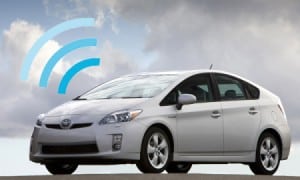 Virginia Tech Transportation Institute is working on the design the integration framework that will allow vehicles to “talk” with their drivers and with other automobiles on the road (V2V).
Virginia Tech Transportation Institute is working on the design the integration framework that will allow vehicles to “talk” with their drivers and with other automobiles on the road (V2V).
The National Highway Traffic Safety Administration awarded the money for the project. The project will design, test, and offer the initial recommended framework that controls how motorists receive communications such as traffic warnings, the too-close approach of another vehicle, weather warnings, or text messages — while driving. Focus will be placed on the communication’s format, visual or audible, and the order and timing of such messages.
The institute has a connected-vehicle test bed along Interstates 66 and 495 near Fairfax, Virginia, that contains 43 wireless infrastructure devices installed along roadways, all communicating with dozens of cars, trucks, and motorcycles equipped with wireless communication systems. The test bed will soon expand to 80 roadside devices.
They are testing various methods for drivers to receive information in a wise, safe, and timely manner, without causing distraction or overwhelming the motorist.
Tests already have been done on driver interfaces such as augmented reality pop-ups on windshields or audible devices, both in simulated labs and on open highways, with motorists communicating with the car by voice or by gesture, such as “sweeping” away information on a screen with the wave of a hand.
The framework will serve as a reference guide by designers of apps and driver systems for connected automobile and related wireless devices, with driver safety and ease of use as a focus.
The system will secure communication networks from hacking.
The roadside wireless communication antennas installed around Interstates 66 and 495 corridors and receive information – basic safety-related messages — from test cars equipped with their own wireless technology.
In 2013, Google brought its famed autonomous car to the Smart Road for several weeks of closed-course testing.
The Virginia Tech institute has been building connected-vehicle technology since 2001.